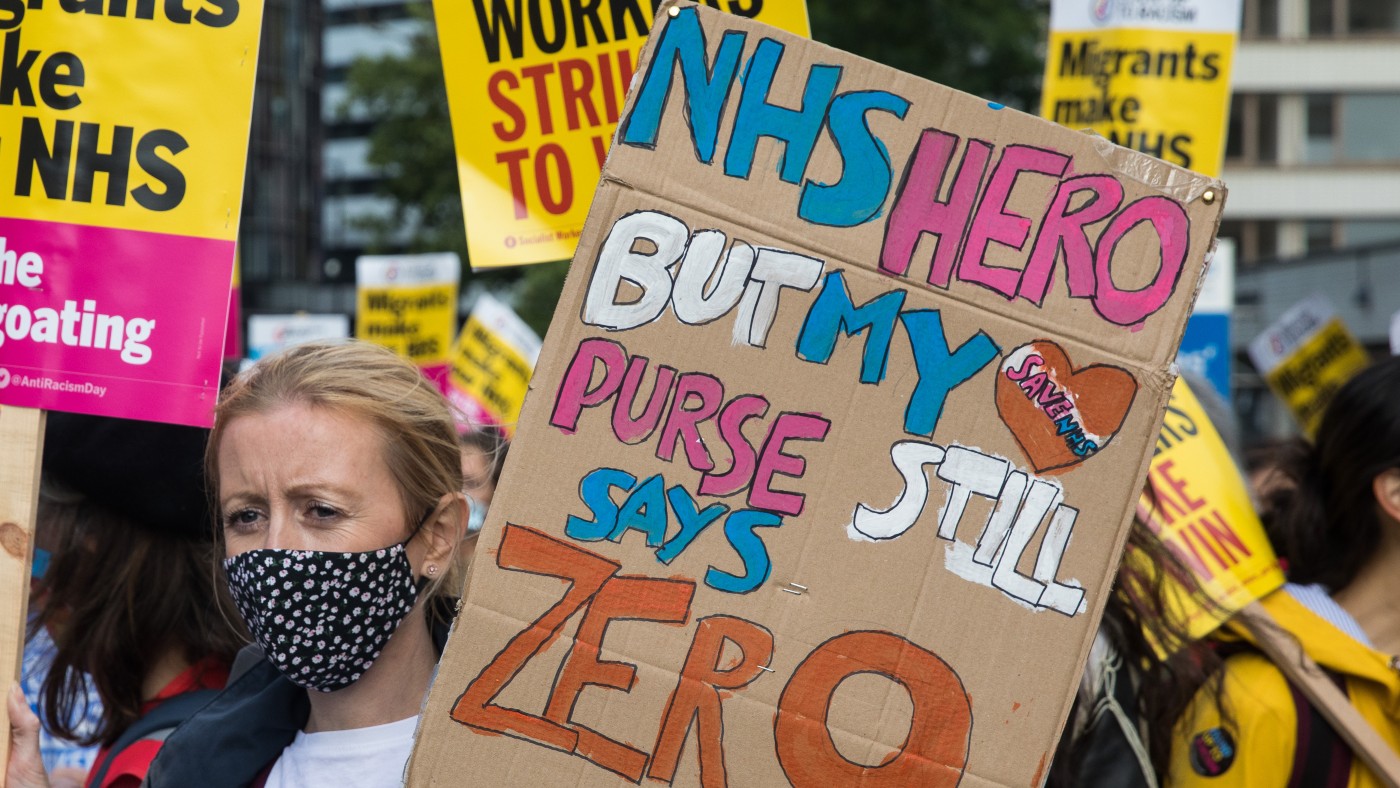Why nurses are taking historic strike action
Royal College of Nursing members have voted to strike for the first time ever

A free daily email with the biggest news stories of the day – and the best features from TheWeek.com
You are now subscribed
Your newsletter sign-up was successful
Nurses across the UK will stage mass walkouts within weeks after voting to take strike action over pay and working standards.
The strikes will affect “more than half of hospitals and community teams” nationwide, the BBC reported, with nursing staff at 176 out of a total 311 NHS organisations backing walkouts after clearing a 50% turnout threshold required to hold ballots. The Royal College of Nurses (RCN) said the “strong and clear” result of the members’ ballots – the first in favour of nationwide strikes in the union’s 106-year history – showed that “enough is enough”.
Nurses will “no longer tolerate a financial knife-edge at home and a raw deal at work”, said the union’s general secretary, Pat Cullen. The RCN is seeking a 5% pay rise for its members above the Retail Price Index (RPI) inflation, currently at 12.6%. Cullen said the strikes were also aimed at raising healthcare standards that are “falling too low”, adding: “This action will be as much for patients as it is for nurses.”
The Week
Escape your echo chamber. Get the facts behind the news, plus analysis from multiple perspectives.

Sign up for The Week's Free Newsletters
From our morning news briefing to a weekly Good News Newsletter, get the best of The Week delivered directly to your inbox.
From our morning news briefing to a weekly Good News Newsletter, get the best of The Week delivered directly to your inbox.
The strike action is expected to begin next month and “could last until spring and affect hundreds of thousands of patients”, said The Times.
The Telegraph reported that according to a “senior health source”, the RCN “will commit to delivering a bank holiday, or Christmas Day, level of service” during walkouts, “with some chemotherapy, dialysis and planned surgery cancelled”. Under a “life-preserving care model”, nurses in A&E and in intensive care will be “exempt” from the strikes, the paper said.
Health Secretary Steve Barclay described the vote result as “disappointing” and argued that the union’s demands “simply aren’t reasonable or affordable”.
A senior hospital staff nurse told the BBC that she felt she had “no choice” but to take strike action. Jodie Elliott said that her pay had “not kept up with inflation for ten years” and that low staffing levels meant “care is becoming unsafe”.
A free daily email with the biggest news stories of the day – and the best features from TheWeek.com
The “unprecedented move” by the RCN comes as “other health care unions Unite, Unison and GMB are also balloting members” over potential walkouts, said The Independent.
Richard Windsor is a freelance writer for The Week Digital. He began his journalism career writing about politics and sport while studying at the University of Southampton. He then worked across various football publications before specialising in cycling for almost nine years, covering major races including the Tour de France and interviewing some of the sport’s top riders. He led Cycling Weekly’s digital platforms as editor for seven of those years, helping to transform the publication into the UK’s largest cycling website. He now works as a freelance writer, editor and consultant.